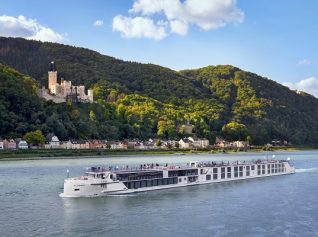SAS looks to the future
Just as Sweden was one of the first countries to recognise and act on the environmental problems facing the world, its national carrier Scandinavian Airlines (SAS) has taken a leading role in minimising the aviation industry’s environmental impact.
“Scandinavian Airlines is driven by a desire to contribute to sustainable development and we are aiming to be the industry’s leading player in regards to environmentally-responsible operations,” says Lars Sandahl Sorensen, General Manager of SAS Australia & New Zealand.
“Our customers are also driving our efforts. SAS Cargo already has many big corporate customers who place a large emphasis on environmental responsibility and who want to be able to calculate their environmental impact when transporting goods around the world. The time is probably not far away when leisure travellers will demand to fly an environmentally-conscious airline too.”
With an exceptional focus on corporate governance, SAS is at the forefront of the world’s airline industry in actively working to reduce greenhouse gas emissions, an unavoidable by-product of operations:
• Over the past decade, SAS has made a major investment in new, cleaner aircraft.
• SAS is also supporting a Swedish fuel research project aiming to produce synthetic jet fuel from renewable raw materials. The project is now at the stage where the fuel will be tested in a real aircraft engine next year.
• SAS is actively working to allow airlines to participate in the EU’s emissions trading system, as it believes this is the most effective way for aviation to help reduce CO2 emissions. Airlines would pay for their emissions, while giving others, who are able to reduce their emissions, a strong incentive to do so.
Other environmental efforts include an infrared de-icing hangar being tested in Norway, reducing the use of de-icing chemicals with up to 70%. Also, the airline’s new generation Business Class seats – which will be introduced next year – will be the lightest in their class, contributing directly to lower fuel consumption.
Since 1996, SAS has improved its eco-efficiency (indexing fuel consumption and emissions per passenger kilometre) by almost 25%. SAS in fact recorded its lowest ever levels of fuel consumption, nitrogen oxide and noise emissions in 2004.
In 2005 SAS is preparing a new environmental index and setting new environmental targets for the years ahead.
 United Kingdom
United Kingdom United States
United States Asia Pacific
Asia Pacific












































Qatar Airways adding Manchester flights
EU entry-exit system delayed again
ATC strike in Greece could disrupt flights this week
Jet2 unveils Samos as new Greek destination for summer 2026
Icelandair launches inaugural flight to Nashville